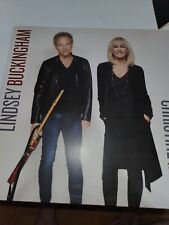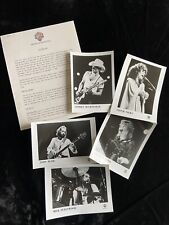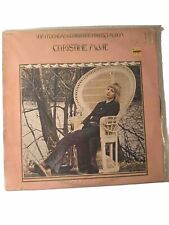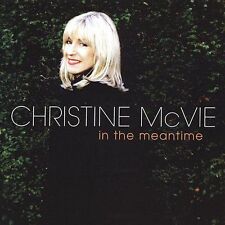|
Boston Globe, Others Lead, Fleetwood Follows Boston Globe, Monday, January 3, 1983 OTHERS LEAD, FLEETWOOD FOLLOWS
NO MUSICAL SCIENTIST, HE MOVES BEYOND WHAT HE BORROWS by Fred Schruers When Lindsey Buckingham first entered a recording studio with Mick Fleetwood and the revamped, California edition of Fleetwood Mac in 1975, he was a bit overawed about playing with his heroes - until he gave Mick some instructions the drummer couldn't immediately translate. "Lindsey was used to playing music with jigsaw parts, almost like some sort of musical scientist," Mick recalls. "He asked me to play some relatively simple thing, and I told him I'd have to work it out first. That blew him away. 'But I've been listening to you for all these . . .' And that was his first excursion into realizing you can do something without planning it out." People are always embarrassing Mick Fleetwood by telling him what a great drummer he is. There's an easy, instinctual swing to his playing, a sound that is direct yet propulsive, and thankfully free of the ornate hot licks most drummers feel compelled to interject. He plays with the spare, deliberate snap and flow of groove-masters like legendary Memphis/Stax sessionman Al Jackson or Chicago bluesmen Fred Bellow and Sam Lay - moving people through musical sensitivity rather than displays of calisthenic prowess. From the martial pummeling of "Go Your Own Way" to the ever-so-delicate hesitations of "Dreams," Fleetwood has established a distinctive sound signature. But don't try telling him that. "That 'Dreams' bit probably came about 'cause John (McVie) and I didn't know what we were doing," he laughs. "I do any number of things I could never repeat again." Fleetwood initially identified with "blues players, New Orleans bands - music with a feel to it. Those guys may not be great technicians, but they swing like the clappers, which is the whole point of drumming to me - that ease of movement, you know?" His key has always been to follow the lead of his guitarists and swingers - to accentuate their statements. "I'm eternally grateful to Peter Green for something he made me aware of, which was never to worry about being clever, but to emote. A lot of African music is complicated if you pick it apart, but they put it across with emotion and wonderful movement. That is rhythm to me. The African players make it all very easy to listen to; you're not confronted with this uneasy feeling of stopping and starting. I don't personally like music which has no flow, and I think a lot of very talented musicians make that mistake, of not realizing what the essence is. "I play to the song, trying to be supportive. I hope I'm sensitive to the dynamics that I got from those basic blues structures, where you get a rapport going with the lead player through the drums. You have to have that give-and- take, and a lot of drummers I don't particularly enjoy are more occupied with playing their drums, rather than being a person relating to someone they're meant to be playing in harmony with - they're not bloody listening! I'd much rather be known for holding down a good 2 4 than ruffling my feathers and rampaging around the drums anytime someone leaves an empty space." Fleetwood's approach to equipment is equally straightforward. His basic set-up is composed of Tama drums and Paiste cymbals, with an oversized kit for the arenas and a much smaller set for the studio. "Yeah, they're just big and healthy," he says, referring to his stage kit with its odd-sized power toms, 20-inch floor tom and (gasp!) 28-inch bass drum. "It's like a cannon, that one - it works, like, WOOOF, this big gust of air. You need that in those enormous halls because they just swallow up the low frequencies." And in tuning his kit, Fleetwood admits that he unwittingly mirrors the slightly out-of-tune vocal harmonies of Buckingham-McVie-Nicks. "That interplay creates a tension within itself, so it pulls, but it's still harmonious - it draws you in. I tune to the sound of the room, using your basic frosted Ambassador heads. I've tried other sorts, but there's no crack' to them when you get turned up. Also, I never tune the resonances out. I like the drums to have some life in them - I like an open sound, tuning the kit so each drum is sympathetic to the other, like a choir. Just so long as it hasn't got some weird little harmonic coming off it into the mikes. God, I hate a kit that's all covered in gaffer's tape - it's like playing practice pads." Then, of course, there's Fleetwood's use of the African talking drum, a concert highlight. Still, his recent trip to Ghana was not intended to invest him, or his 1981 LP "The Visitor," with a command of African music. "I'm not Mr. Polyrhythm, and I wasn't trying to make a connoisseur's album. But if people felt that at no point was there a meshing of things, I'd be disappointed - I'd have failed." Fleetwood is now hoping to steal time to head out on another musical excursion, back to Africa or perhaps Brazil. Yet, even for someone with his commercial credentials, it's an uphill battle to get support from a label - or radio programmers - for such projects. "I don't know if people are scared of new things, but the people in control of getting the music out there may be scared - people are not given a comfortable opportunity to hear exotic music.' When they see me in concert with the African drum, they probably just think it's some tall madman up there hitting a block of wood or something. I would like to think otherwise, but . . . ." Thanks to Lesley Thode for transcribing this article and sending it to us.
|







![Christine McVie - Christine Mcvie [New CD] picture](/vintage/img/g/91YAAOSwjSVlQ5Xu/s-l225/Christine-McVie-Christine-Mcvie-New-CD-.jpg)

